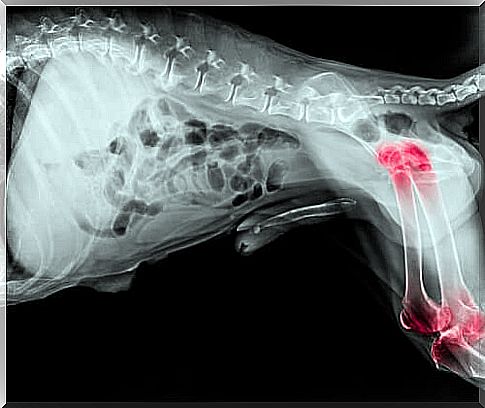Spirulina For Dogs: What Are The Health Benefits Of This Food Supplement?

Spirulina for dogs offers several health benefits. But before you decide to add it to your pet’s feed, you should know how this natural additive works. Read our article to learn more about the main health benefits and the correct dosage.
Spirulina is a spiral-shaped alga with a striking green-blue color. It can live in both fresh and salt water. However, it needs a lot of sun to grow quickly.
Spirulina for Dogs: Five Health Benefits
Nowadays you can get dehydrated spirulina as a powder. So you can dose them easily and just have to dissolve them in a little liquid before use. These are the top five health benefits of spirulina for dogs .
Improves digestion
With everything our pets eat, it’s no surprise that they sometimes experience digestive problems. If you feed spirulina regularly, you will prevent the appearance of fungi and bacteria. Otherwise, these could accumulate in the intestines. The chlorophyll it contains strengthens your dog’s immune system as it is a natural cleaner.
In addition, the nutrients contained in the alga are easily absorbed, which means that the animal’s intestinal tract has to work less to feed itself.
Anti-inflammatory
Another health benefit of spirulina for dogs is its anti-inflammatory effects. The phycocyanin it contains is a wonderful anti-inflammatory that also has analgesic properties. Therefore, if your dog has an inflammatory disease or has had an operation, you should give him spirulina.
In addition, spirulina is a natural remedy for arthritis, a disease that older dogs in particular suffer from. If you provide your dog with this natural additive, you can make his everyday life much easier and relieve his pain.
In addition, none of the side effects (such as liver damage) that classic anti-inflammatory drugs can cause occur.

Spirulina for Dogs: A Great Dietary Supplement
If you want to take care of your pet in the best possible way, you should add spirulina. Because this is how you provide it with an extra portion of proteins, minerals, vitamins, fiber and numerous other health- promoting nutrients .
Spirulina is also highly recommended if your dog is suffering from malnutrition or is recovering from an illness in which he lost weight or did not want to eat. This nutrient will provide it with the energy that your four-legged friend needs to regenerate.
Protects the liver
Chlorophyll and phycocyanin improve the functioning of various organs, such as the liver. This allows it to excrete more toxins.
The kidneys also benefit from spirulina for dogs, because this alga acts as an antioxidant, which promotes the elimination of toxins from the blood. This in turn improves your pet’s overall health and delays its aging process.
Spirulina for dogs for cancer prevention
Cancer is one of the diseases that are usually difficult to cure in pets. Hence, it is important to take preventive measures. The active ingredient phycocyanin contained in Spirulina has been shown to prevent cancer from occurring.
Phycocyanin prevents cancer cells from forming and promotes the growth of T cells, which are responsible for destroying the malignant cells.
If your dog has cancer and is receiving radiation therapy, make sure to feed him spirulina. Radiation therapy leads to tissue damage and spirulina promotes regeneration of these damaged areas.
Spirulina for dogs: the right dosage
Because spirulina is highly concentrated, your dog only needs a very small daily dose to reap its numerous health benefits. However, we recommend that you purchase organic products and not industrially produced preparations. This will ensure that the product does not contain any unwanted additives.

As a general dosage recommendation, you should give your dog 1/8 teaspoon of spirulina for every 5 kg of body weight.
It is best to start with a smaller amount so that the organism and especially the digestive system of the animal can get used to it. You can then gradually increase the dose until you reach the recommendation above.









